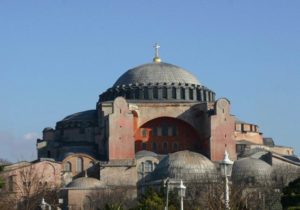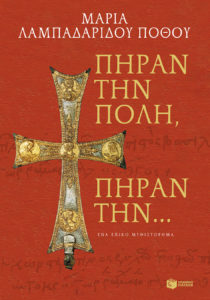Hagia Sophia is not only a Christian church that has been vandalised, but it is also a universal symbol, a symbol of Hellenism and its 567 years of silence are "as if it was only yesterday" as the psalmist said.
But the issue is not just Greek. I believe that it concerns the entire civilized world and especially the Western world, whose historical guilt will at the least be washed away for abandoning the last emperor Paleologos, leaving him helpless in his last agony. Pope Nicholas V had promised to help - in return for the unifying function of the filioque.
I believe that if today's troubled world has a future, it must be based on mutual respect for the sacred issues of every country.
Twenty years ago, writer Ismail Kadare wrote in the Parisian magazine "Nouvel Observateur" about the conversion of Hagia Sophia into a mosque. To quote him, "It seems to me that this is a global concern for our times: The two largest religions in the world housed in the same building."
At that time I was writing my novel "The City has been taken" and I had replied that: "his speech is profane, impolite and disrespectful. And that he can not touch symbols so great and so sacred to a people, symbols that were sanctified by sacrifice. The fact that Hagia Sophia is silent and dark and lives in the night of her legend for five hundred years, this belongs to the facts of History. But to speak literally about the church's fate today, that is sacrilegious. And if such a time ever comes, then the issue will not be with the "Albanian archbishop and the Greek or Turkish ambassador", but, I believe, with the Christians throughout the world, because today Hagia Sophia is an ecumenical symbol".
What hurts us shapes us. And what hurts us, we owe it to ourselves to fight for. In the end, we must defend the historical truth and respect it.
In my novel "The City has been taken", I have recorded minute by minute (and only by chroniclers who were eyewitnesses) all those facts concerning the attitude of Pope Nicholas V who canceled the aid he had promised to the emperor.
In May 2001, Pope John Paul II came to Greece and apologized, after so many centuries, for the vandalism of the first crusaders in Hagia Sophia in 1204.
Today we call for a stop to a different kind of vandalism. Not the vandalism of lifeless gold and enamel, but the vandalism of the historical truth and memory and the respect for our sacred monuments.


